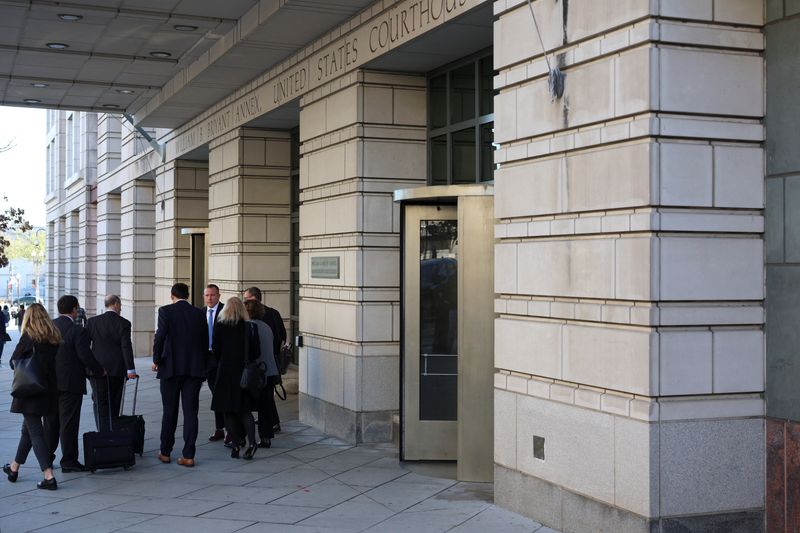US appeals court won’t lift limits on Associated Press access to White House

By Mike Scarcella
(Reuters) -A U.S. appeals court on Tuesday declined to lift restrictions imposed by President Donald Trump’s administration on White House access by Associated Press journalists after the news organization declined to refer to the body of water long called the Gulf of Mexico as the Gulf of America as he prefers.
The full U.S. Court of Appeals for the District of Columbia Circuit kept in place a June 6 decision by a divided three-judge panel that the administration could legally restrict access to the AP to news events in the Oval Office and other locations controlled by the White House including Air Force One.
The D.C. Circuit order denied the AP’s request that it review the matter, setting up a possible appeal to the U.S. Supreme Court.
The Associated Press and White House did not immediately respond to requests for comment on Tuesday.
In a lawsuit filed in February, the AP argued that the limitations on its access imposed by the administration violated the U.S. Constitution’s First Amendment protections against government abridgment of free speech.
Trump in January signed an executive order officially directing federal agencies to refer to the Gulf of Mexico as the Gulf of America. The AP sued after the White House restricted its access over its decision not to use “Gulf of America” in its news reports.
The AP stylebook states that the Gulf of Mexico has carried that name for more than 400 years. AP said that as a global news agency it will refer to the body of water by its longstanding name while acknowledging the new name Trump has chosen.
Reuters and the AP both issued statements denouncing the access restrictions, which put wire services in a larger rotation with about 30 other newspaper and print outlets. Other media customers, including local news outlets with no presence in Washington, rely on real-time reports by the wire services of presidential statements, as do global financial markets.
The Trump administration has said the president has absolute discretion over media access to the White House.
The AP won a key order in the trial court when U.S. District Judge Treevor McFadden, who was appointed by Trump during his first term, decided that if the White House opens its doors to some journalists it cannot exclude others based on their viewpoints, citing the First Amendment.
The D.C. Circuit panel in its 2-1 ruling in June paused McFadden’s order. The two judges in the majority, Neomi Rao and Gregory Katsas, were appointed by Trump during his first term in office. The dissenting judge, Cornelia Pillard, is an appointee of Democratic former President Barack Obama.
(Reporting by Mike Scarcella; Editing by David Bario and Will Dunham)









